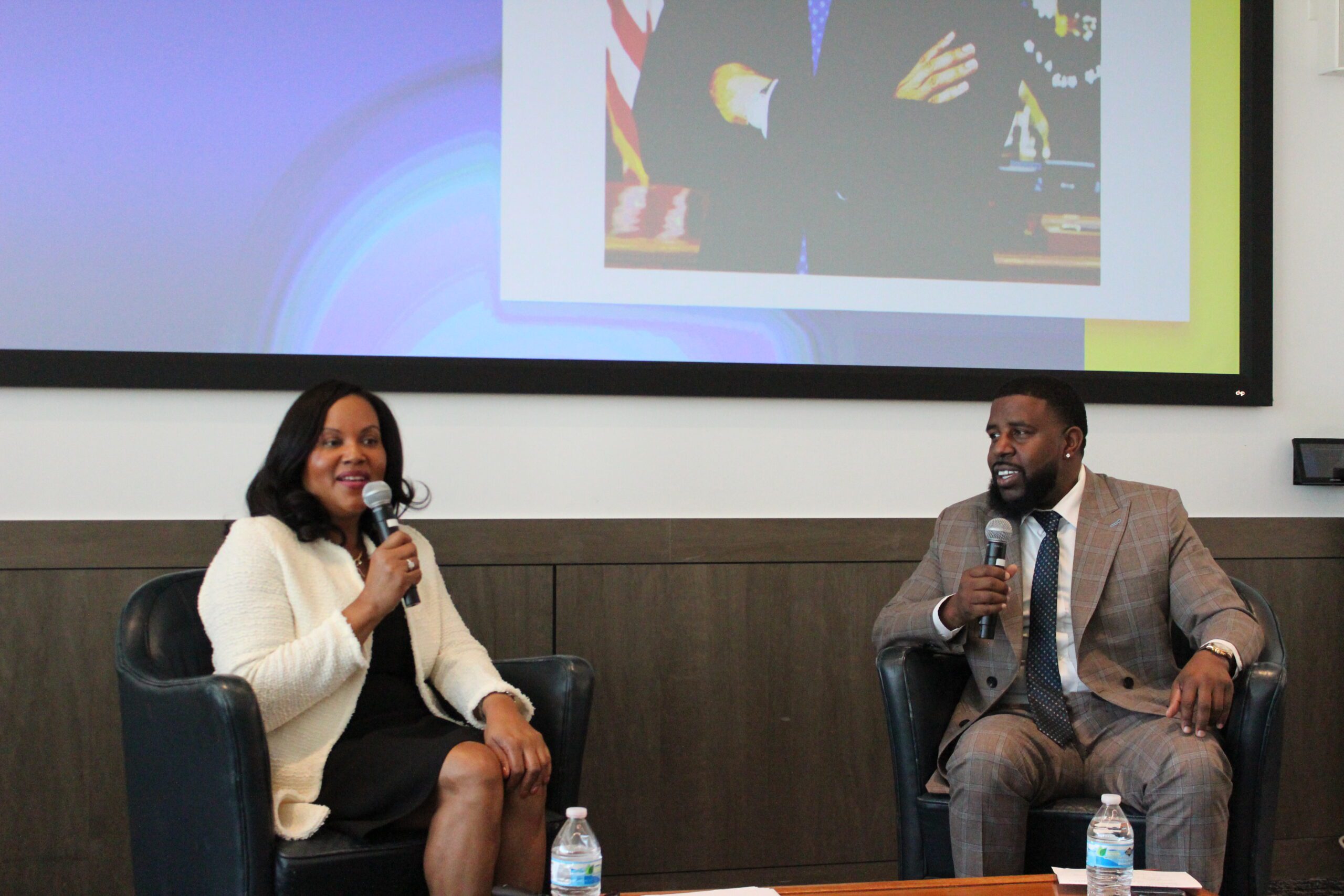Adanté Pointer ’03 Reflects on Black Lawyers’ Impact, Urges Students to Fight for Justice

Assistant Dean Elizabeth McGriff ’96 and civil rights attorney Adanté Pointer ’03 discuss the legacy of Black attorneys and the ongoing fight for justice. Pointer encouraged students to use their legal education to drive change.
Discussing the impact of Black lawyers in the United States, civil rights attorney Adanté Pointer ’03 told UC Law San Francisco students that they, too, can use the law to change society.
For over two decades, Pointer has fought for victims of police violence and systemic injustice, securing multimillion-dollar settlements for families—including that of Oscar Grant, whose tragic killing by a BART officer was depicted in the film “Fruitvale Station.” His work has earned him numerous recognitions, including as one of the Daily Journal’s Top 100 Lawyers in 2024.
Pointer joined Assistant Dean Elizabeth McGriff ’96, who leads UC Law SF’s Legal Education Opportunity Program (LEOP), for a conversation organized by the campus Black Law Students Association during UC Law SF’s second annual Diversity Week. The discussion traced the legacy of Black attorneys, from Macon Bolling Allen, the first Black lawyer in the U.S., to civil rights icons like Thurgood Marshall and Pauli Murray. They reminded students that history is still being written—and they have a role in shaping it.
“You have an ability—through the uniqueness of the degree and the education you’re going to get—to continue those fights,” Pointer said.
The discussion was part of “Black Excellence: The History and Impact of Black Lawyers on the Legal System,” an event that underscored the vital role of Black attorneys in shaping the legal landscape and inspiring future generations.
McGriff and Pointer explored pivotal moments in civil rights law, including the landmark Brown v. Board of Education decision, which struck down racial segregation in schools in 1954. They also highlighted the work of trailblazing attorneys like Charles Hamilton Houston, whom Pointer called the “architect of litigation” during the Civil Rights Movement. Houston strategically challenged Jim Crow laws in the Deep South, often arguing before all-white juries openly hostile to Black lawyers and their cause.
“You had to have tremendous courage to take on some of the battles Black lawyers were taking at that time in American history,” McGriff said.
Pointer, an Oakland native and LEOP alumnus, shared defining moments from his career, including his first oral argument before the U.S. Ninth Circuit Court of Appeals. Despite his nerves, his passion for justice carried him through, and the court ruled in his client’s favor—setting a legal precedent in a case alleging excessive police force against a UC Davis student.
He also spoke of cases he took when others wouldn’t, like securing a $2.4 million settlement for the family of an Oakland man killed by a menacing neighbor after police ignored repeated warnings about violent threats and behavior. “No one wanted to take the case because precedent said you can’t sue the police for not doing their job,” Pointer explained. But by digging deeper, he and his team found a way forward.
Urging students to use their law degrees for more than just a career, Pointer left them with a call to action: “You yourself can be a warrior within the legal profession and change society.”